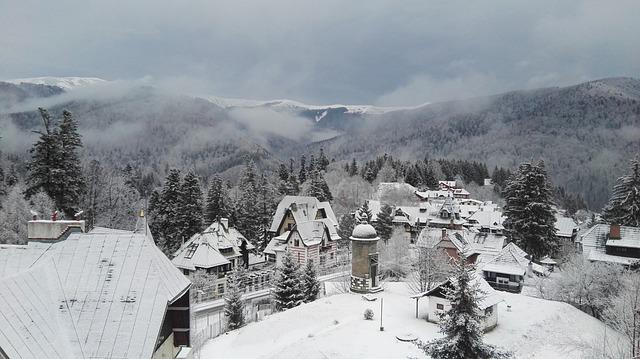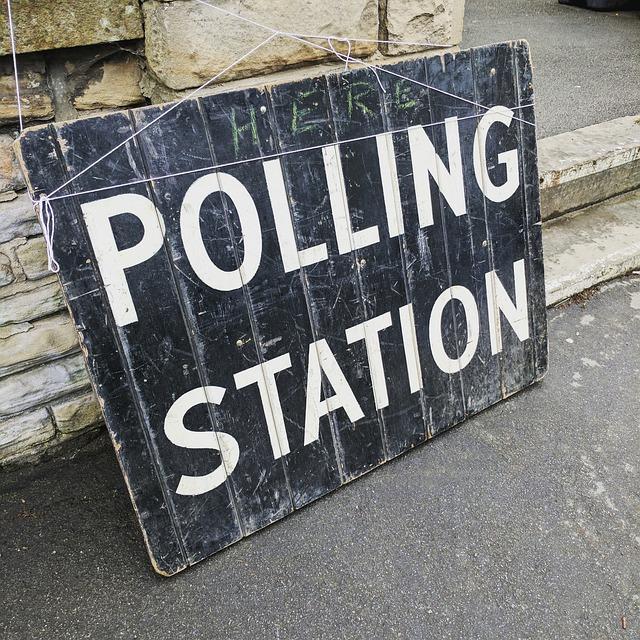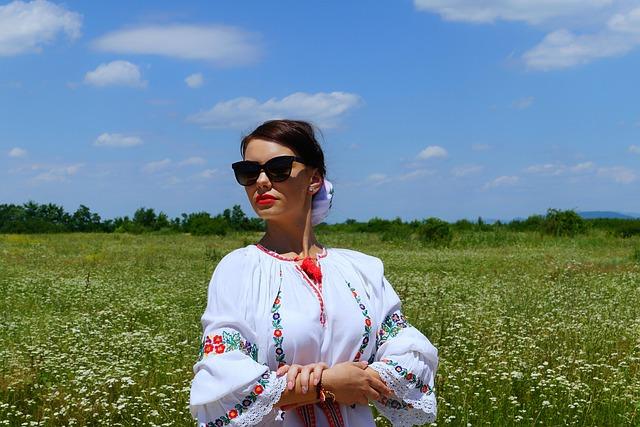europes Resolution on Georgescus Candidacy: Analyzing the Implications
The latest determination by European authorities concerning Georgescu’s candidacy has raised vital discussions about political dynamics and the way forward for ideological illustration within the area. By questioning the legitimacy of his bid, Europe sends a sign that ultranationalist views might not align with the core values of democracy and inclusiveness which might be central to the European mission. This growth might end in a ripple impact throughout numerous political events, prompting them to reassess their platforms and messaging methods, particularly in nations the place such sentiments have gained traction.
Furthermore, the implications lengthen past particular person candidacies; they could properly form the broader political panorama in Romania and past. Key stakeholders, together with civil society and political analysts, are actually carefully watching the next elements:
Rise of Populism: Will this determination result in a decline in ultranationalist assist?Voter Sentiment: How will this affect public opinion in upcoming elections?European Unity: Does this strengthen or weaken cohesion inside EU member states?
These factors replicate a important juncture for each Romania’s home politics and Europe’s collective stance in opposition to extremism. The stability of energy inside European political constructions would possibly very properly hinge on how such conditions are navigated sooner or later.
The Rise of Ultranationalism in Romania: Context and Penalties

Lately, ultranationalism has gained vital traction in Romania, reflecting broader tendencies throughout Europe. This surge is pushed by numerous elements, together with financial instability, social unrest, and a response to immigration challenges. Political events and actions that espouse ultranationalist sentiments typically make the most of rhetoric that emphasizes sovereignty, cultural purity, and a backlash in opposition to perceived exterior threats. As public discontent grows, these factions are discovering extra receptive audiences in a local weather of uncertainty. Notably, the position of social media has amplified their messages, permitting for the speedy unfold of nationalistic ideologies.
Consequently, the results of this ultranationalist rise are far-reaching. Key impacts embody:
Elevated division inside Romanian society, as differing views on ethnicity and identification floor.The potential for legislative modifications that would undermine minority rights and democratic ideas.Strained relations with neighboring nations and the EU, as ultranationalist leaders advocate for a extra isolationist stance.
The latest determination by European authorities to ban ultranationalist politician Georgescu’s election bid serves as a stark reminder of the worldwide ramifications of home ultranationalism. It raises questions in regards to the stability between nationwide sovereignty and communal obligation inside the broader European context.
Understanding the Authorized Grounds for the Election Ban

The latest determination to ban Romanian ultranationalist Georgescu from collaborating in upcoming elections raises vital questions in regards to the authorized foundation for such actions.Governance in Europe permits for candidates to be barred from elections if they’re deemed to pose a risk to democratic values or public security. On this context, authorities might invoke numerous authorized frameworks, together with however not restricted to:
Nationwide Safety Issues: If a candidate is related to extremist ideologies, their presence on the poll might be seen as jeopardizing nationwide unity.Compliance with European Union Laws: Member states should adhere to EU ideas, selling democracy and rejecting hate speech and discrimination.Public Sentiment and Previous Context: A rustic’s previous experiences with ultranationalism can result in preemptive measures aimed toward stopping any resurgence of comparable actions.
This case invitations scrutiny of the precise authorized provisions invoked to justify the ban. Key authorized devices would possibly embody provisions below the Romanian Structure, alongside obligations set forth by EU treaties, which mandate that member states uphold elementary rights and democratic ideas. To make sure transparency in these proceedings, authorities may have to offer clear proof of how Georgescu’s candidacy contravenes established legal guidelines. the next desk summarizes related authorized grounds:
Authorized groundDescriptionConstitutional ProvisionsRegulations in opposition to candidates selling hate or violence.EU Elementary RightsObligations to guard democracy and human rights.Nationwide Safety Lawspreemptive measures in opposition to extremism.
The Position of European Establishments in nationwide Politics

Lately, the affect of European establishments on member states’ political landscapes has turn out to be more and more obvious, particularly in gentle of challenges posed by ultranationalist actions. The latest case of Romanian politician Georgescu serves as a major instance of how European rules and requirements can intersect with nationwide electoral processes. Establishments such because the European Union and the European Court docket of Human Rights have established frameworks aimed toward selling democratic values and human rights, thereby not directly shaping the eligibility and conduct of political candidates throughout Europe. These our bodies present pointers that nationwide governments should adhere to, which might successfully regulate and even impede the rise of extremist figures in politics.
This situation highlights the advanced interaction between nationwide sovereignty and European oversight. Whereas some argue that interventions by establishments just like the EU are necesary to keep up order and democratic integrity, others view them as encroachments on nationwide self-determination. The implications of such actions can resonate past borders, maybe sparking debates on nationalism and identification. Key factors embody:
Institutional Affect: European entities set standards that affect nationwide elections.Democracy promotion: Efforts to thwart extremism align with broader democratic objectives.Nationwide Response: Nations typically grapple with the stability between compliance and autonomy in political issues.
Public Response: How residents and Politicians View the Ban

The response to the ban on Georgescu’s election bid has been polarized, reflecting deep divisions inside the populace.Many voters categorical assist for the choice, viewing it as a vital step to uphold democratic values and forestall the rise of extremist ideologies. Proponents argue that such measures are important in safeguarding the multicultural cloth of Europe. “We can’t enable hate to outline our politics,” acknowledged one supporter at a latest rally. Conversely, others understand the ban as an infringement on democratic freedoms, fearing that it units a hazardous precedent.For these critics, the choice raises questions on who actually will get to take part in European politics and whether or not the suppression of unpopular voices undermines the continent’s democratic foundations.
Politicians throughout the spectrum have weighed in, showcasing a wide range of stances. These aligned with conventional events have largely applauded the ban, emphasizing a collective accountability to problem extremism head-on. “We should stand united in opposition to those that threaten our values,” declared a distinguished determine from the ruling social gathering. In distinction, far-right leaders have condemned the motion as a politically motivated assault on free speech. They argue that the ban represents an elite maneuver to silence dissent and keep the established order. The divergence in reactions underscores the bigger ideological battle shaping Europe’s political panorama, prompting an ongoing debate in regards to the stability between safety and liberty.
Way forward for Romanian Politics: navigating the Path forward

The political panorama in Romania is at a crossroads, with the latest developments surrounding ultranationalist candidate Georgescu’s election bid elevating vital questions. On one hand, the choice by European authorities to impose restrictions underscores a powerful dedication to democratic values and the prevention of divisive rhetoric. The implications for ultranationalist actions in Romania might be profound, as different events can also face elevated scrutiny concerning their platforms and candidates. This case invitations a broader discourse on how nationalism intersects with democratic ideas throughout Europe and highlights the necessity for a cautious recalibration of political ideologies.
As Romanian residents put together for upcoming elections, a number of elements will affect their decisions, together with:
The Rise of Choice Events: New political actions might achieve traction by capitalizing on disillusionment with conventional events.Civic Engagement: There’s a rising emphasis on selling civic training and participation, significantly amongst youthful voters.Strengthened European Integration: The potential for nearer ties with the EU can encourage reforms and improve democratic accountability.
In navigating these modifications, it turns into important for romanian lawmakers to prioritize inclusivity and societal cohesion. The evolving dynamics will set the stage for a extra united entrance in opposition to extremist ideologies, making certain that the trail forward fosters a vibrant democracy able to addressing the aspirations of all Romanians.
Closing Ideas
the case of Romanian ultranationalist candidate Georgescu and his disqualification from the elections serves as a major indicator of the European Union’s ongoing wrestle with the rise of far-right actions inside its borders. As nations grapple with their historic narratives and modern political landscapes, the choice to bar such candidates displays a fancy interaction between democratic values and the preservation of societal cohesion. The implications of this ruling lengthen past Romania, elevating questions on the way forward for ultranationalism in Europe and the mechanisms in place to deal with extremist ideologies. Because the political local weather continues to evolve, it stays essential for policymakers and residents alike to interact in discussions in regards to the stability between free expression and the safeguarding of democratic ideas. We are going to proceed to observe developments on this story and its broader affect on European politics.
Source link : https://europ.info/2025/03/22/romania/did-europe-ban-romanian-ultranationalist-georgescus-election-bid-euronews/
Writer : Noah Rodriguez
Publish date : 2025-03-22 17:36:00
Copyright for syndicated content material belongs to the linked Source.


